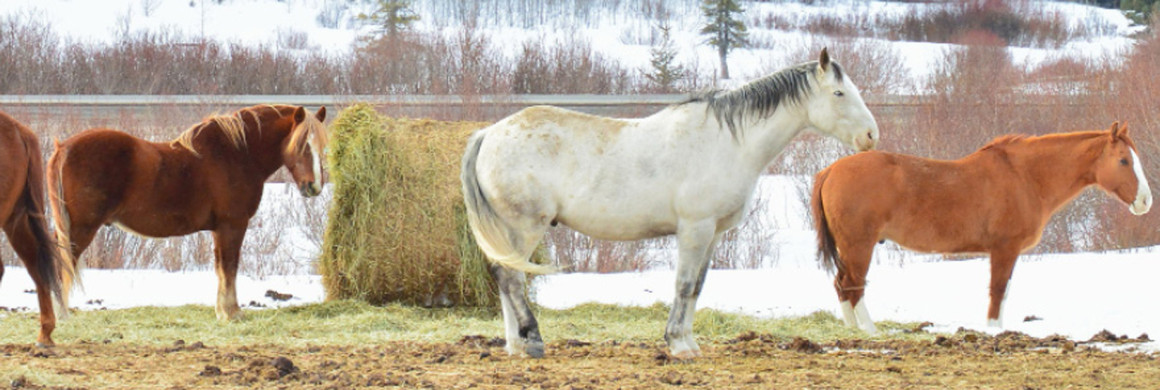The winter season can make serious changes to the way your horse lives and exercises. This, in turn, changes your horse’s nutritional requirements. From the type of feed you’re providing, to the nutrients found within, let’s take a look at winter feeding for horses.
Less Exercise. The horse who is used to daily workouts or spending most of his time outside might suddenly find himself stalled for days on end during bad weather. Many horsemen will automatically cut back on grain. After all, the stalled horse doesn’t need the same energy level provided by a performance horse diet, right?
Close. The horse doesn’t need the same type of energy, but they shouldn’t be losing out on calories while they’re on stall-time. When you cut back on a high-energy feed, supplement with a low-energy alternative. Grass hay and fat calories are two great sources of low-energy nutrition.
Less Water. Does your horse give up on water in the winter? Keep an eye on horses who tend to dehydrate themselves because they don’t like cold water… or who simply don’t drink enough. If heating the water bucket isn’t doing the trick or isn’t practical at your farm, turn his grain into a mash with a gallon or two of hot water mixed into his regular feed. Be sure to give it at least fifteen minutes for the pellets and cereals to expand before feeding it to your horse.
Less Grass. Horses at pasture might eat more sand and dirt during the winter as the grass dwindles to stubble. To avoid sand colic, take steps to provide clean eating surfaces in your fields. A rubber or plywood mat under feed buckets, or a hay feeder with a trough underneath of it are good options to keep your horse’s nose out of the dirt.
More Aches and Pains. Does your horse have joint pain or arthritis? The majority of performance horses deal with some level of joint disease, and cold weather can make your horse more stiff and sore than usual. Keep a close eye on your horse’s movement for signs of pain, and manage inflammation with omega-3 sources such as flaxseed. Joint supplements with minerals to build up joint fluid and tissue can also help with winter aches and pains.
Winter can change everything for your horse, from the way they eat to the way they feel when you head out for a ride. Take the changing seasons and the way they affect your horse seriously, and be ready to make changes to keep him happy all winter long.


